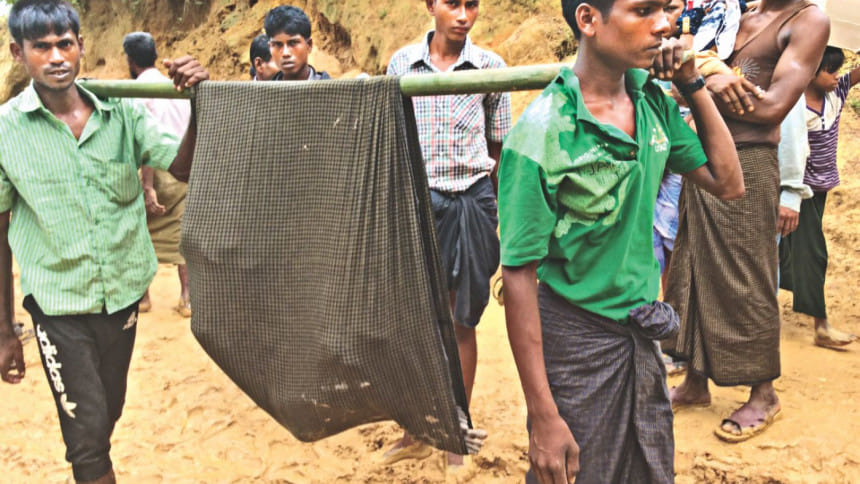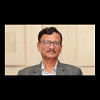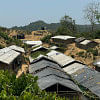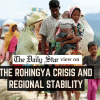Global community steps up relief efforts

The United Nations and the international community are ramping up relief operations for the Rohingya refugees.
The US is providing an additional nearly $32 million in humanitarian assistance to address the urgent needs of Rohingyas as well as internally displaced people in Rakhine and host communities in Bangladesh.
"We applaud the Government of Bangladesh's generosity in responding to this severe humanitarian crisis and appreciate their continued efforts to ensure assistance reaches people in need," Office of the Spokesperson of US Department of State in Washington said yesterday.
Also, Saudi King Salman Bin Abdul Aziz yesterday allocated $15 million for the Rohingya refugees fleeing a military crackdown in Rakhine.
Saudi Arabia said it would deploy a humanitarian relief team to Bangladesh to help the refugees urgently in need of aid.
South Korea also yesterday announced humanitarian aid of $1.5 million for emergency relief operations for a large number of Rohingyas.
The US said the rapid influx of hundreds of thousands of refugees has strained resources and overwhelmed humanitarian agencies and local authorities.
Through this support, the US will help provide emergency support to more than 400,000 displaced people in Myanmar and Bangladesh.
"The US calls upon all parties to allow for unfettered humanitarian access to people in Rakhine State, Burma, and we also encourage other donors to join us in providing additional humanitarian assistance for those affected by the crisis," according to a statement of the spokesperson's office.
Christian Aid has also launched an appeal to help all communities displaced by violence in Myanmar and the Rohingya refugees in Bangladesh.
In Bangladesh, Christian Aid is initially sending £40,000 to local partners to provide food, water, hygiene and sanitation, and healthcare provisions to 23,000 people.
A number of other countries, UN and international organisations are also extending their support.
Britain had earlier announced that it would provide £30 million to meet the urgent humanitarian needs of the vulnerable Rohingyas in Bangladesh and Myanmar. The majority of the funding would be spent in Bangladesh.
The European Union would provide another €3 million aid, Australia pledged $5 million, Kuwait announced $1.5 million, Switzerland would give Tk 10.2 crore and Denmark would provide Tk 25.55 crore, while the UAE has already given Tk 1.83 crore in assistance.
Cargo planes carrying relief materials have so far arrived at Chittagong airport from India, Indonesia, Azerbaijan, Turkey, Morocco, Malaysia, Iran and the UAE.
UNHCR spokesperson Duniya Aslam Khan yesterday told reporters in Geneva that Bangladesh has allocated some 2,000 acres [810 hectares] of land for the refugees. The UNHCR site planners estimate this would be sufficient to house 150,000 or more of the 421,000 refugees who have arrived since August 25.
"A main focus of our work over the weekend and yesterday was at a new extension site next to the Kutupalong camp near Cox's Bazar where we began moving people who have recently arrived into family tents and temporary communal shelters," she said.
Abdullah Al Rabeeah, adviser at the Royal Court and general supervisor of the King Salman Center for Relief and Humanitarian Work, yesterday said a specialised team would assess the condition of the Rohingya refugees.
Korean Ambassador in Dhaka Ahn Seong-doo yesterday said the humanitarian aid of $1.5 million would be given through International Organization for Migration (IOM).
An estimated 421,000 Rohingyas -- a largely stateless Muslim minority in Myanmar -- have arrived in Bangladesh since the latest bout of violence.
The UNHCR noted "remarkable generosity" by many individual Bangladeshis, with people trucking food and clothes for the refugees in the camps and others camping along the single main road.
However, the government needs more support, and UNHCR would issue an appeal this week for emergency humanitarian response in Bangladesh till the end of the year, according to a report of UN News Centre yesterday.
The World Health Organization (WHO) is also providing critical support to step up health services delivery.
"Vulnerable populations require access to health services, including emergency and basic health care. Access for women to reproductive health services is especially important," observed Dr Poonam Khetrapal Singh, regional director for WHO Southeast Asia.

 For all latest news, follow The Daily Star's Google News channel.
For all latest news, follow The Daily Star's Google News channel. 








Comments